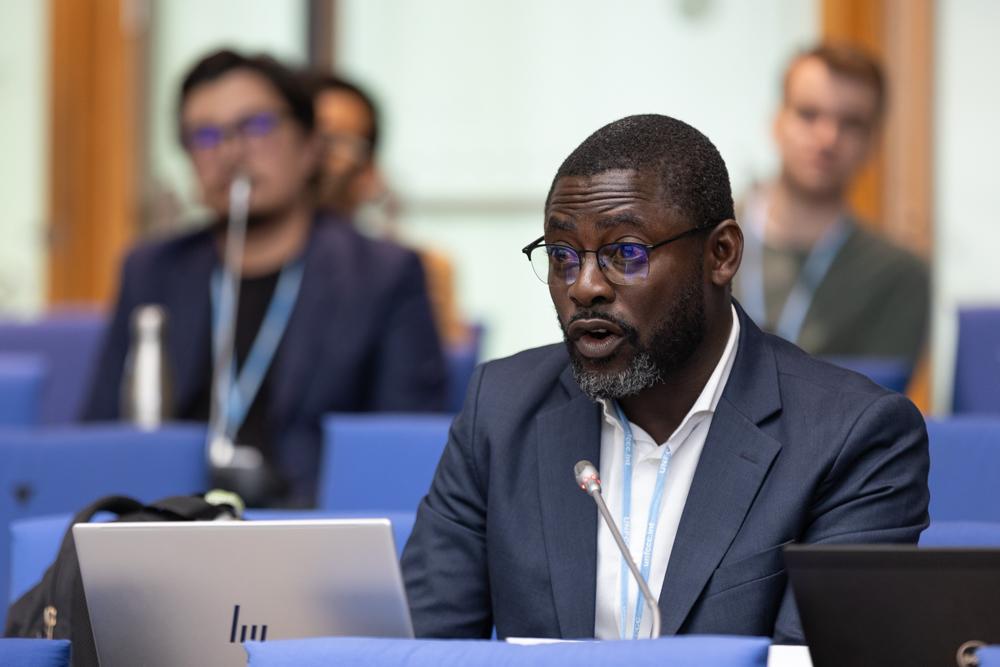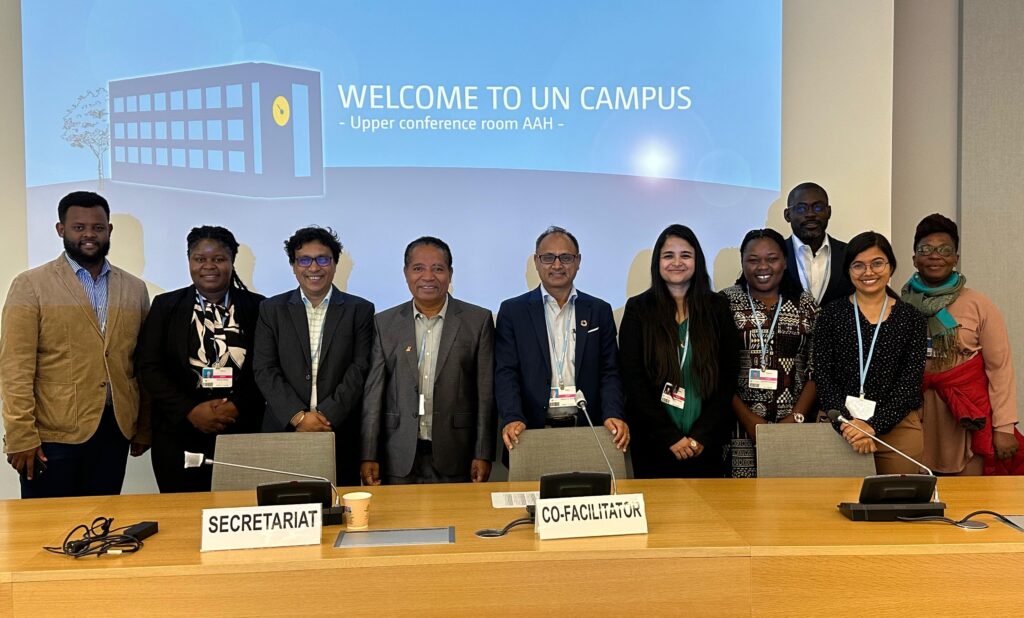The June UN Climate Change Meetings, SB60, are underway in Bonn, Germany. Adessou Kossivi, GNDR Regional Lead Africa, and Climate Change Risk Driver Lead, is representing GNDR in Bonn, and is sharing his reflections here throughout the conference.
New Collective Quantified Goal & Nationally Determined Contributions
The first day at the Bonn Climate Change Conference focussed on the New Collective Quantified Goal (NCQG) and preparation of the next generation of the Nationally Determined Contributions (NDCs). There is a major need for an increase in public financing for disaster risk reduction (DRR) in the Global South and support of locally-led DRR policies. The NCQG must respond to these needs.
We also considered how the IPCC continues to contribute to and influence actions that will reduce the impact of climate change and enhance the resilience of the most vulnerable communities.
Parties continued to emphasise the severe impacts of climate change that they face and demanded that the Paris Agreement commitments, especially limiting the increase of global temperatures to 1.5C, remain on track.
Effective climate finance
Day two continued with technical assessments of the first phase of the NCQG – and planning for the next steps. Each country must contribute to ensuring the Paris Agreement objectives are met. They will make this contribution via the NDCs, which must serve as the entry point for commitments on loss and damage, mitigation, and adaptation.
Importantly, it is not only the quantity of contributions that should increase, but also the quality too. So today, countries have called for a commitment that financial resources make a genuine impact on the ground. For example, in Colombia, loans make up most of the climate funds, while exploiting the country’s fossil fuels could represent 60% of their GDP. Climate financing must incentivise meaningful climate action. According to the latest GAR Report, the global expenditure on fossil-fuel energy subsidies was $5.9 trillion (2023). Redirecting this finance to climate finance is one place to begin.
Countries called for a more transparent and detailed finance system, alongside a robust commitment to understanding that, although climate change is a threat, countries in the global majority must be given the opportunity to continue their development so they can support their most vulnerable communities.
High income countries must understand that the vulnerability of lower and middle income countries is increasing because the necessary resources needed to support those most at risk, are not available.

